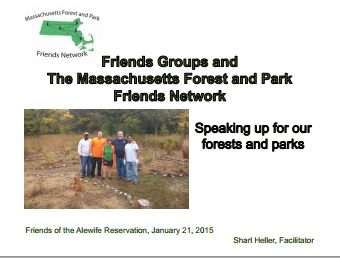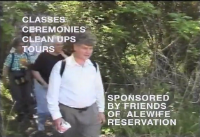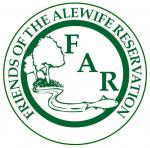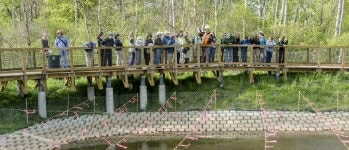Dauphin County Conservation District
(Clean Water Act of 1997) (Water Quality Act of 1987)
Little River has a chance with Federal compliance standards reinforced.
By Ellen Mass
A clean bill of health cannot yet be given to the city, state and the engineers as yet, says Friends of Alewife Reservation to a Belmont Citizen Forum February news about two combined sewer overflows (CSO) cut offs in Cambridge. Officially, the close date was December 23 at a cost of over 23 million (recently corrected by city staff to note 100 million). This major sewage condition remained for 15 years of polluting Little River and Alewife Brook of the Mystic River watershed, while the Lower Mystic with much greater industrial history was improving. Now there is a grand increase in herring spawning, thanks to the Mystic River Watershed Association. The State MWRA and city of Cambridge were legally responsible. Federal law suit was aimed at MWRA for numerous CSO's throughout the Commonwealth, now mostly cut off to our rivers and streams.
Belmont's upstream sanitary sewer system, however, continues to greatly pollute Cambridge and its downstream communities. Although some congratulations are in order, results must be proven. The area bordering the Alewife floodplain area, Which is 5 feet above sea level, appears to be grand central station with thousands of new units already up and more coming. The federal court order for 35 municipalities was in effect since the '80s but federal requirements retain the court order in Cambridge via MWRA until proper testing assessments of the CSO clean up are fulfilled. Cambridge and MWRA are responsible for the post testing, still under hold, although an automatic testing station has been installed at discharge area of storm water wetland seen by everyone walking their dog and strolling there. No sensor has yet been installed.
Cambridge must publicize whether the additional storm water/wetlands attenuation area of the 2011-2013 created storm water wetlands meets state and federal storm water standards, since more now enters the prize-winning wetlands with grand views and boardwalks via the "forebay" off of Cambridge Park Drive.
Visually wildlife has been scarce, and we hope for their return. Data must be published to show quality improvements. The court order for "Alewife Brook" and "Little River" has a Variance until September 2016 and can receive variance delay permits up until 2022, which allows Belmont to continue with its 'F' federal status and sewage filled river, unsafe for humans and unhealthy for river growth and habitat. And Cambridge continues permitting developers with more impervious surfaces and sloppy storm water run off practices resulting in a 'D-' federal report status. Regionally, it seems our municipalities work well over common failures, but are unable to preserve a rare and greatly needed regional floodplain forest even when resolutions and popular votes demand regional cooperation.
Improved water quality standards with greater care will improve the Mystic River and Boston Harbor, not to mention Atlantic Ocean (Little River often flows both directions but mostly west to east). Forums and committees have made few gains to prevent a sewage filled and damaged Little River impacting animals and people, and removing possibilities for rich biodiversity and improved passive recreation and learning on the Mystic River Watershed for regional communities.
Thousands will flock to Cambridge to buy luxury units for the view, for trees, bird song and open space while ironically, the construction and storm water run off and profusion of impervious surfaces poison the river which gives life to this beauty — unless the city and town comply with new federal storm water standards and find a way to make amends to Little River by improving its flow functions.
Money spent on pipes and infrastructure is expensive and Cambridge spends it for CSO separation via court order. The storm water wetland (Cambridge Park Drive) cost of $150 million should create cleaner storm water and attract wildlife. It does not. Until federal assessments are complete (hopefully not through more delays until 2020), and meters turned on, and Cambridge and Belmont comply with the new MS4 regulations of the EPA concerning reportage of outfalls of pipes, culverts and streams, we refrain from applause and keep an open report card grade for 2016-2020 at Little River in Cambridge and Little Pond in Belmont and Alewife Brook in Arlington and Somerville.
The larger watershed context of annual high bacteria, arsenic, oxygen depletion, and nitrogen/phosphorus counts will continue to encourage unscrupulous developers to fill any open space at Alewife with residential units further maiming an ailing sub-watershed that could or has reached the tipping point, unable to return to minimal health as toxins settle permanently and are activated by storm conditions. Dead animals reveal toxicity, and we find them frequently. Losing the only floodplain forest around, and great increase of storm water run-off due to much higher New England east coast precipitation levels (rising oceans and surges) to come at projected 50 percent increase are matters with solutions we can well perform now, although the city is presently wanting more commercial stores and restaurants for condo-buying newcomers at Alewife. Priorities should be climate change environment.
We have been promised by the Dept. of Public Works, an 85% improvement in Little River. US-EPA will determine if and when that is achieved. Until that time, no permits should be afforded developers in the quadrangle off of Concord Ave. until Little River (and its flow tributaries of streams and brooks) is attenuated and MS4 standards implemented. Cambridge, Arlington and Belmont, considered prosperous communities, comprise one of those state regions anxiously awaiting municipal environmental respect. Grant an exciting natural biodiversity treasure to Cambridge, Arlington and Belmont, and visitors from the Alewife T stop, while respecting sister communities of Somerville, Arlington and Medford which also receive Cambridge and Belmont's pollution and effluent. Our residents, animals and birds deserve clean water. No time to allow delays.
- Home
- Directions
- FAR Wildlife Blog
- Calendar
- News
- Donate Now
- Get Social!
- Storm Water Wetlands
- Plants and Restoration
- Photos
- Videos
- About & Projects
- Master Plan for Alewife
- Archive
- Newsletters
- Contact
 Presentation Spotlighting Alewife Reservation
Presentation Spotlighting Alewife Reservation
 Follow us on Twitter
Follow us on Twitter
 Like us on Facebook
Like us on Facebook
 Follow us on Instagram
Follow us on Instagram
Forward our web address to a friend!
- An Urban Gem - Alewife Reservation Nature Preserve
- Envisioning The Silver Maple Forest
- History and Policies of Cambridge, Belmont, and DEP
- Storm Water Wetlands
- Friends of Alewife Reservation brochure
(front, back) - Technical Analysis of Upper Alewife Basin
- Watershed: An Excursion in Four Parts
- The River Is A Restless Spirit: Life in the floodplain forest
-
Assessment of Silver Maple forest for DEP Adjudicatory hearings and
Patrick Fairbairn, author of the Assessment - Community Native Garden Flora
The
Alewife Reservation
is a unique natural resource for the communities of Belmont, Arlington and Cambridge
and home to hundreds of species, including hawks, coyotes beavers, snapping turtles, wild turkeys and muskrats,
the reservation is a unique natural resource for the community.
Historical information (Powerpoint)
Friends of Alewife Reservation works to protect and restore this wild area and the surrounding area for the water quality, native plants, animals and over 90 bird species with paths for walking, running and biking, recreation, and for classroom education and research. We regularly steward and preserve the Reservation area for wildlife and for the enjoyment of present and future generations.

(video)
By-Laws
About Friends of Alewife Reservation
Statement of Purpose
Citizen Forester newsletter archive
The Birds of the Cambridge Region of Massachusetts

by William Brewster 1906
Nuttal Ornithological Society
Biodiversity Study of Alewife Reservation Area: Species, Habitat, Ecosystems

Inventories by David Brown, wildlife assessor (2003, 2004.) Published by and available from FAR for $10. Write or call for your copy. (sample)
Updated Dave Brown Inventories (2008, 2010)
Inventories of Alewife Reservation Wetland Plants by Walter Kittredge, Botanist (2013)
Email: alewife@greencambridge.org
Join our mailing list
For technical problems with this website, email: webmaster@friendsofalewifereservation.org

